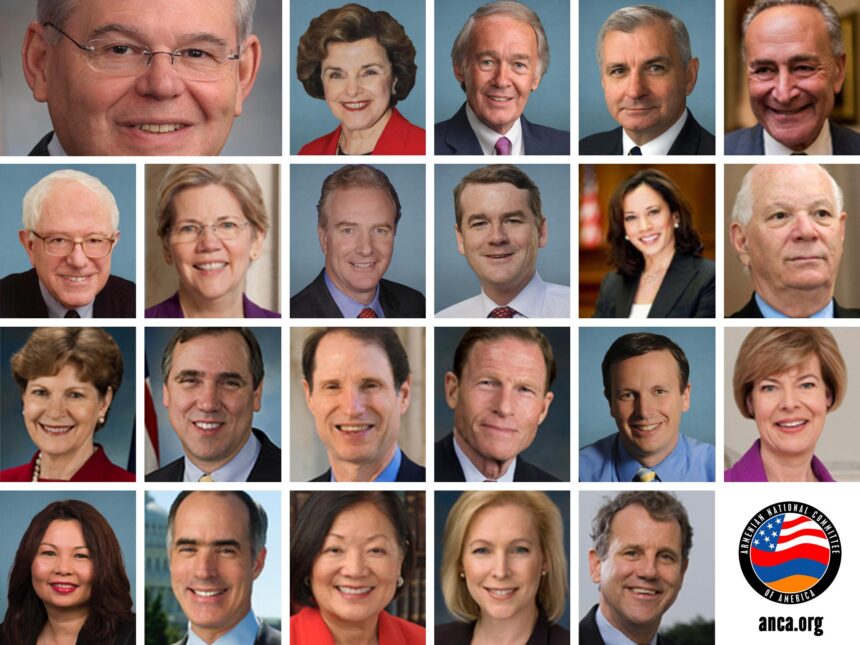As tensions escalate on Capitol Hill, a group of senators is scrambling to broker a last-minute compromise aimed at averting the so-called “nuclear option” over proposed changes to GOP Senate rules. The potential overhaul, which could dramatically alter procedural norms and power dynamics in the chamber, has sparked fierce debate within the Republican caucus and drawn sharp criticism from Democrats. With time running out before a critical vote, lawmakers are working behind the scenes to find common ground and prevent a contentious showdown that could reshape Senate operations for years to come.
Senators Push for Bipartisan Compromise to Avoid Senate Rule Overhaul
As tensions rise on Capitol Hill, a coalition of bipartisan senators is intensifying efforts to forge a last-minute agreement designed to circumvent a drastic overhaul of Senate rules pushed by GOP leadership. These lawmakers emphasize the importance of maintaining procedural decorum, warning that resorting to the so-called “nuclear option” could erode longstanding Senate traditions and further deepen partisan divides. The coalition is urging their colleagues to consider a moderated approach that balances effective governance with respect for established legislative processes.
Key points under discussion include:
- Preserving the filibuster: Ensuring that minority voices can still influence legislation.
- Rule adjustments: Targeted changes to expedite certain confirmations without broad procedural upheaval.
- Commitment to dialog: Encouraging ongoing negotiations to find common ground.
| Proposal | Support | Opposition |
|---|---|---|
| Limit debate time on nominations | Moderate Democrats,Some Republicans | Progressive Democrats |
| Maintain 60-vote threshold | Bipartisan Senators | GOP Leadership |
| Adjust committee rules | Centrist Republicans | Hardline Republicans |
Implications of the Nuclear Option on Senate Procedures and Minority Rights
The potential activation of the nuclear option marks a critical pivot in Senate operations,fundamentally altering the balance of power between the majority and minority parties. By bypassing the customary 60-vote threshold to change Senate rules, the majority could expedite legislative processes but at the cost of sidelining minority input. This shift risks eroding the Senate’s longstanding culture of deliberation and compromise, potentially leading to increased polarization and legislative volatility.
Key ramifications include:
- Weakening Minority Rights: Minority senators would lose important procedural tools like the filibuster,diminishing their ability to influence legislation.
- Altered Senate Dynamics: The change could encourage more partisan and rapid rule changes, departing from the Senate’s tradition as a deliberative body.
- Precedent Setting: Once employed, the nuclear option may become a normative tactic, prompting retaliatory maneuvers in future conflicts.
| Aspect | Traditional Senate Rules | Post-Nuclear Option |
|---|---|---|
| Filibuster Threshold | 60 votes required | Simple majority (51 votes) |
| Minority Influence | Strong; can delay/block measures | Significantly reduced |
| Rule Change Process | Lengthy,consensus-driven | Expedited,majority controlled |
Key Stakeholders and Their Positions on the GOP Rules Change Proposal
Key players within the GOP are sharply divided on the proposed rule changes, exposing deep fissures as the party grapples with its future direction. Traditional conservatives are voicing strong opposition, warning that the new rules could undermine long-standing Senate norms and marginalize minority voices within the party. Meanwhile, a faction of hardline conservatives supports the overhaul, arguing it will streamline legislative procedures and empower the majority to push through the party’s agenda without obstruction.
- Moderate GOP Senators: Cautiously optimistic but wary of alienating swing voters.
- Party Leadership: Seeking consensus to avoid a divisive “nuclear option” vote.
- Conservative Activist Groups: Advocating for rule changes to accelerate policy enactment.
- Institutionalists: Concerned about eroding Senate traditions and bipartisan cooperation.
| Stakeholder | Position | Key Concern |
|---|---|---|
| Moderate Senators | Cautiously opposed | Potential voter backlash |
| Hardline Conservatives | Strongly supportive | Efficiency in passing legislation |
| Leadership | Seeking compromise | Avoiding party infighting |
Recommended Strategies for Preserving Senate Tradition While Addressing Party Concerns
To maintain the Senate’s historic framework while accommodating party demands, lawmakers are pushing for compromise-centered approaches that emphasize transparency and cross-party dialogue. Key strategies include:
- Enhanced committee collaboration: Establishing bipartisan task forces to review and recommend rule modifications ensures collective ownership.
- Incremental adjustments: Implementing gradual changes rather than sweeping reforms helps preserve procedural continuity.
- Regular consultations: Institutionalizing periodic meetings between party leaders can prevent misunderstandings and promote consensus-building.
In addition,senators have proposed structured benchmarks to gauge the effectiveness of any adopted amendments.These allow real-time course corrections without resorting to drastic measures. The table below summarizes proposed metrics for tracking impact:
| Metric | Description | Evaluation Period |
|---|---|---|
| Legislative Throughput | Number of bills progressed monthly | Quarterly |
| Cross-party Amendments | Percentage of bipartisan-supported amendments | Biannual |
| Rule Violation Incidents | Occurrences of procedural infractions | Monthly |
Wrapping Up
As the deadline looms, senators from both parties are intensifying efforts to find common ground and secure a last-minute deal that would prevent the controversial “nuclear option” from upending longstanding Senate procedures. The outcome of these negotiations will not only determine the immediate future of GOP rule changes but could also set a critical precedent for how the chamber manages its internal governance moving forward. Lawmakers and observers alike await the resolution,recognizing that the stakes extend far beyond procedural battles to the heart of Senate tradition and bipartisan cooperation.







